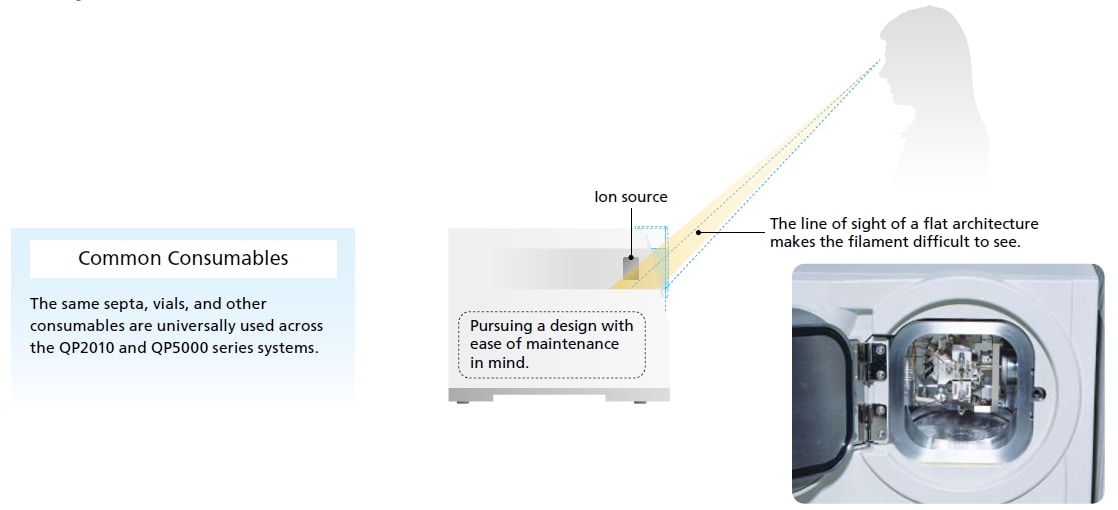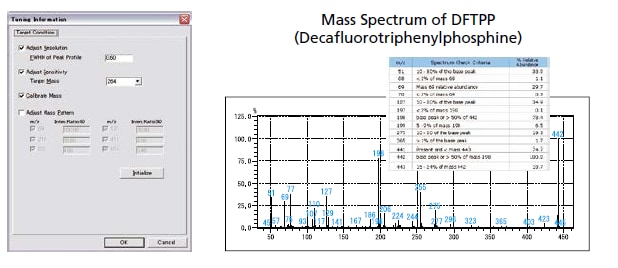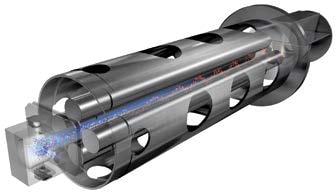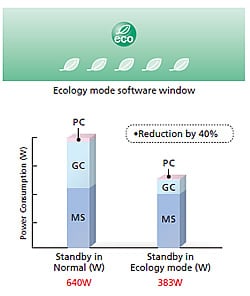GCMS-QP2010 SE Single Quadrupole GC-MS - Features
Gas Chromatograph Mass Spectrometer
Easy maintenance reduces downtime

Design Offers the Ultimate in Ease of Use
The GCMS-QP2010 SE incorporates a front-opening chamber in a design that is both visually pleasing and practical, allowing maintenance to be performed with ease from the front of the instrument. "MSNAVIGATOR," which supports maintenance, has been improved to help the user perform instrument maintenance.
Superior technology achieves high sensitivity and stability

Stable Mass Spectra
The ion optics are optimized by employing a high-performance quadrupole mass filter and Shimadzu's proprietary Optdesign simulation program to provide high-quality mass spectra. Fully-automated MS tuning enables anyone to optimize parameters easily and consistently. This helps ensure that stable mass spectra can always be obtained.
High-Performance Quadrupole Mass Filter

Shimadzu's patented technology for mass scanning produces ideal mass filter characteristics (Patent: US5227629).
This system features an easily removable pre-rod and lens system that allows the user to quickly perform cleaning and maintenance. Less downtime means greater productivity.
GC-MS System Based on New Environmentally Friendly Concepts

An “Ecology mode” Saves Power Consumption and Reduces Instrument Running Costs
By activating the new Ecology mode feature whenever the system is in between analyses or after finishing a batch of analyses, the GCMS-QP2010 SE will use about 60 % less carrier gas and 40 % less power than previous models. Given typical operating conditions,* this reduces helium gas consumption by about 2 cylinders (with a capacity of 7 m3) per year, reducing laboratory operating costs.
*Using standard analytical conditions.
Reduction of Power Consumption in Standby Mode
When Ecology mode is entered, unnecessary power consumption by the GC, MS, and PC is automatically eliminated. The consumption of carrier gas is also automatically reduced. Furthermore, Ecology mode can be entered automatically after a batch run, allowing the lab to realize running cost savings on a nightly basis.


